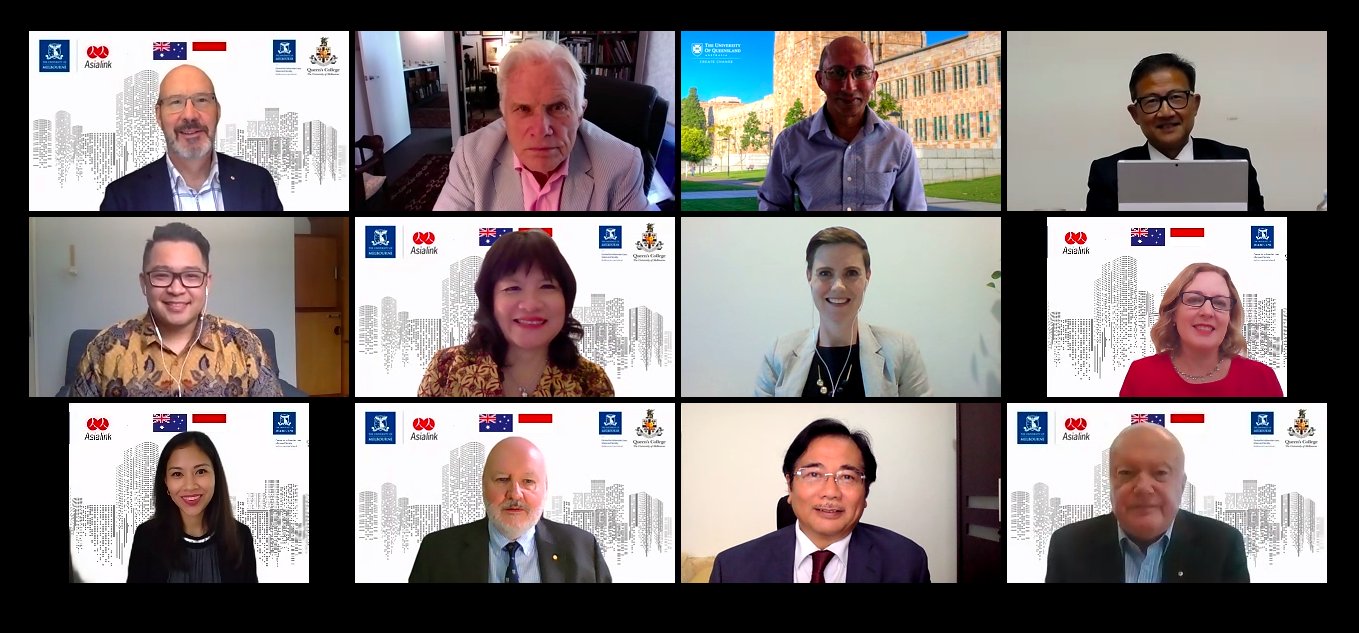Navigating the Geopolitics of the Indo-Pacific Post COVID-19 Webinar
The onset of COVID-19 occurred amid rapid changes and uncertainty in the global and regional geopolitical outlook. Asialink, alongside the Centre for Indonesian Law, Islam and Society and Queen’s College, hosted a webinar to discuss how COVID-19, and the changes it engendered, would effect Australian and Indonesian policy toward the region and one another.
Early in 2020, Australia and Indonesia celebrated the 70th anniversary of the appointment of diplomat John Hood as Canberra’s first ambassador to Jakarta and newly re-elected Indonesian President Joko Widodo made a highly successful visit to Canberra. As the COVID-19 pandemic spread globally, however, it became increasingly obvious that it was altering the fabric of the international system, and re-shaping the challenges faced by Australia and Indonesia.
Asialink, Queen’s College, and the Centre for Indonesian Law, Islam and Society at the University of Melbourne convened an online webinar in October 2020 to explore how the two nations could navigate an increasingly uncertain future.
The chief questions explored were;
- Will COVID-19 accelerate or displace existing geopolitical and economic trends?
- What are the prospects for cooperation through regional institutions in responding to those challenges?
- How can Indonesia and Australia work more closely together to achieve common aims in the new international environment and support each other’s emergence from the crisis?
- Beyond the COVID-19 crisis, what are the opportunities for Australia and Indonesia to exercise greater middle-power leadership within regional and global economic and political institutions?
The event included the valued perspectives of Indonesia’s Ambassador to Australia, Kristiarto Legowo, and Australia’s Ambassador to Indonesia, Gary Quinlan AO, as well as former ambassadors Teuku Mohammad Hamzah Thayeb and John McCarthy AO, and a wide variety of voices from the private sector, academia, and think tanks.
